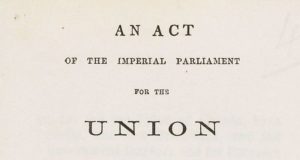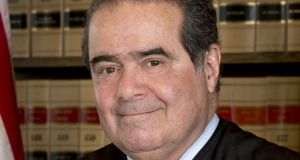This article will appear in the upcoming edition of Law Matters, a publication of the Canadian Bar Association Introduction The consensus in the academic community when it comes to interpreting the Charter is that more is better. There is little debate that the Charter is a “living tree,” such that its meaning must “evolve” over time so that it “accommodates ...
Read More »Tag Archives: Charter of Rights and Freedoms
Carter Should not be the “Last Word” on Assisted Dying
The Alberta Court of Appeal ruled in May in Canada (AG) v. E.F. that a woman suffering from “severe conversion disorder” — a non-terminal, psychiatric condition that causes physical symptoms — was eligible to receive “aid in dying” under the “criteria” stated in the Supreme Court of Canada’s February 2015 decision on physician-assisted dying, known as Carter I. The Attorney ...
Read More »Constitutional Originalism is a Canadian Staple
Few legal concepts have been so little understood yet so much vilified as originalism has been in Canada. Adam Dodek has said that “originalism” is a “dirty word” on this side of the Canada-U.S. border. Following the death of Justice Antonin Scalia, Canadian jurists, including former Supreme Court judges, took to the media to remind us that originalism has no ...
Read More »The Need for Doctrine: Scalian Originalism and Canadian Purposivism
A legal lion passed away recently. One might argue that the death of Justice Antonin Scalia means much more for the American legal audience than the Canadian one. After all, Scalia’s death tossed the Supreme Court of the United States into the centre of an already contentious election season and brought to the forefront the divisively partisan tendencies of the ...
Read More »Justice Miller’s First Major Decision May Surprise His Critics
In December, I questioned the common thought that lawyers, scholars and judges who promote judicial restraint and the rule of law should be called “conservative”. I cited Justice Grant Huscroft of the Ontario Court of Appeal simply applying accepted common law principles to lead to what appeared to be a “progressive” result in the employment law case of Michela v. ...
Read More »Misreading Carter v. Canada
In its report released in December, the Provincial-Territorial Expert Advisory Group On Physician-Assisted Dying recommends that assisted suicide and euthanasia be publicly funded and available for the non-terminally ill, the mentally ill, and for minors. Their Report says that its recommendations “were developed in response to the Supreme Court’s decision in Carter.” The Report claims, inaccurately, that the Court “did ...
Read More »Reaffirming Magna Carta
Magna Carta turned 800 this week. After eight centuries, it remains the foundational text of Anglo-American law. Borne out of a bitter dispute between King John and his aggrieved barons in the spring of 1215, the “Great Charter” scarcely resembles any modern human rights instrument. It did not grant freedom of expression and religion, or even life, liberty and the ...
Read More »Constitutional Challenge to Building Code Act “Doomed to Fail”
Tuesday’s Ontario Court of Appeal decision in R. v. Goebel properly disposed of a claim that raised an important issue, but was deeply flawed from a legal perspective. Justice Epstein’s reasons helpfully noted that s. 7 of the Charter does not include property rights, and an infringement of the right to “security of the person” requires a real connection to ...
Read More »Do Hard Cases Make “Inherently Bad Laws?” Carter v. Canada and the Right to Physician-Assisted Death
The Supreme Court of Canada has granted leave to appeal in a British Columbia decision involving the right to physician-assisted suicide and euthanasia. In Carter v Canada (Attorney General), a terminally ill British Columbia resident sought to declare the provisions of the Criminal Code which prohibit physician-assisted dying. The concepts of “physician-assisted suicide” and “euthanasia” are not identical. Physician-assisted suicide ...
Read More » Advocates for the Rule of Law
Advocates for the Rule of Law








